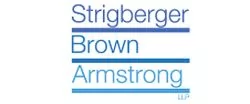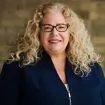In a rare challenge to exclude scientific evidence as unreliable in a civil case, Justice Bale found SPECT scans do not meet the reliability foundation test for novel scientific evidence, in the recent decision of Meadev. Hussein, 2021 ONSC 7850.
According to the decision, the plaintiff, Meade, alleges she sustained a traumatic brain injury, as well as psychological and emotional trauma, as a result of a motor vehicle accident. The plaintiff underwent a SPECT scan, which was reviewed by Dr. Hui-Yin Siow, a specialist in diagnostic radiology and nuclear medicine and the Director of Nuclear Medicine at Southlake Regional Health Centre. Dr. Siow provided a report which contained his conclusion that, based on the SPECT scan, the claimant suffered a previous traumatic brain injury.
The defendant sought an order excluding all evidence referring to the brain SPECT scan, taking the position that SPECT scan technology constitutes "novel science", which does not meet the reliability foundation test set out in the Supreme Court of Canada's decision in R. v. J.-L.J.
Justice Bale heard the evidence of Dr. Siow as well as the evidence of Dr. Sarah Mitchell, a specialist in neurology at Sunnybrook Health Sciences Centre and an assistant professor at University of Toronto's Neurology Division of the Department of Medicine.
The Court considered first whether Dr. Siow's use of brain SPECT evidence in this case was novel science. They concluded that while the use of brain SPECT technology was not novel, what was novel was the use of the brain SPECT to prove that a patient has suffered a traumatic brain injury that can be distinguished from other causes of perfusion abnormalities.
Because the evidence was considered novel, the Court went on to consider whether the evidence satisfied the reliable foundation test. The Court reviewed the four factors considered to be helpful in assessing the reliability of expert evidence, noting that Dr. Siow conceded that his work has not been published or peer-reviewed, that there were no peer review articles supporting his theory, and that the rate of error associated with his theory has not been tested. Dr. Mitchell gave evidence that the use of brain SPECT technology to diagnose traumatic brain injuries is not supported by the academic community represented by the teaching hospitals in the GTA. Finally, the Court reviewed several articles and guidelines submitted by the parties. Ultimately, Justice Bales concluded that Dr. Siow's brain SPECT evidence was inadmissible because it was not sufficiently reliable.
The Court took the opportunity to highlight that expert evidence that advances a novel scientific theory or technique is subjected to special scrutiny to determine if it meets the threshold of reliability, noting the closer the evidence approaches an opinion on the ultimate issue, the stricter the application of this principle. Justice Bale stated that the role of gatekeeper should be taken seriously. Quoting from the SCC decision in R. v. J.-L.J., he added: "The admissibility of expert evidence should be scrutinized at the time it is proffered, and not allowed too easy an entry on the basis that all of the frailties could go at the end of the day to weight rather than admissibility." He disagreed with the argument that novel science is less of a concern in nonjury cases, commenting that if evidence cannot be shown to be sufficiently reliable to go to a jury, it is equally inadmissible in a trial by a judge alone.
This decision follows a significant increase in the presentation of SPECT scans in personal injury cases in Ontario, and in particular since the definition of "catastrophic impairment" was amended in the Statutory Accident Benefit Schedule, June 1, 2016, to require positive findings on medically recognized brain diagnostic technology under Criterion 4. Notably, these SPECT scans have been interpreted, almost exclusively by Dr. Siow, as diagnostic evidence of traumatic brain injury.
The content of this article is intended to provide a general guide to the subject matter. Specialist advice should be sought about your specific circumstances.

